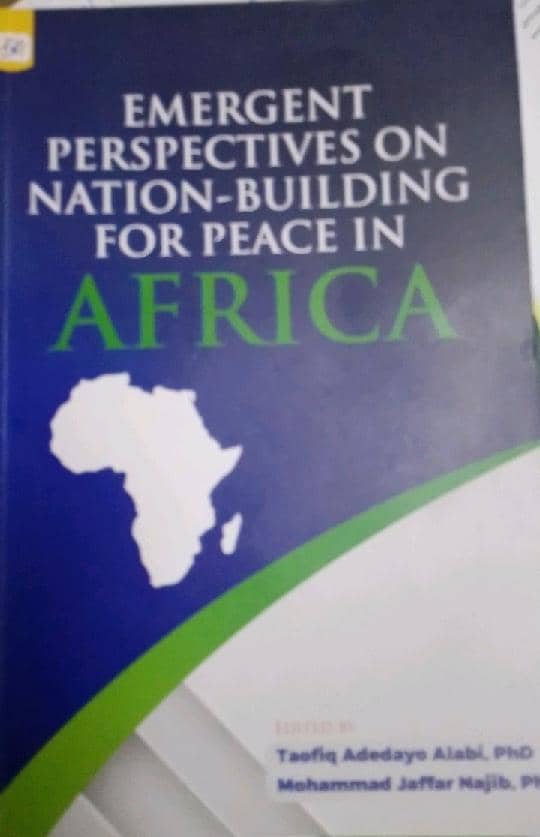FOREWORD
Just as nation building is a product of sustainable peace process, peace is a necessary prerequisite for positive change and growth of the society. The absence of peace in a society is a threat to developmental efforts; a direct consequence of low participation of citizens in the peace process. Unfortunately, many citizens believe only the government is saddled with the responsibility of promoting peace in the society. It should be noted that several factors can threaten societal peace. These include tribalism, ethnicity, corruption, favouritism, bad leadership, lack of education and so on. Only a well-conceived and conscious peace process can foster unity and progress in a heterogeneous continent like Africa. Granted that conflict precipitates violence which, in turn, remains a threat to peace and development in any human society, it is therefore advisable that all hands should be on deck to address any threat to peace, whether natural or human. In sum, sustainable strategic actions must be taken in a bid to stimulate national consciousness in the citizens to appreciate the benefits of unity and togetherness over and above self-interest.
This book is a compendium of empirical and well thought-out studies that x-ray a myriad of nation-building issues which constrain the much needed peace and development in Africa. With constructive submissions that draw poignant attention to the measureless potentials of the continent both in terms of human and material endowment, this volume is a conscious guide to stakeholders who are charged with the task of instilling and sustaining the much needed peace for sustainable growth and development of the black race.
The volume is structured into two parts. The first comprises chapters rendered in English while the second are chapters composed in Arabic. The preference for the hybrid medium was informed by the need to allow for wider contribution of quality opinions on the subject matter. As could be discerned, the aggregate submissions pointedly address the issues of threat, conflict, social cohesion, education, cooperation, social justice and equilibrium, selflessness and good governance, among others.
Without doubt, this book is a veritable addition to contemporary discourse on peace for sustainable nation building with particular reference to Africa. It is hoped that the thought provoking impression epitomized by the book would make it a resourceful addition to the contributions by scholars in peace and development studies in particular and all curious readers in general.
Prof. Lateef F. Oladimeji, FCIPM
Dean, Faculty of Humanities and Social Sciences,
Al – Hikmah University, Ilorin
Kwara State, Nigeria.

